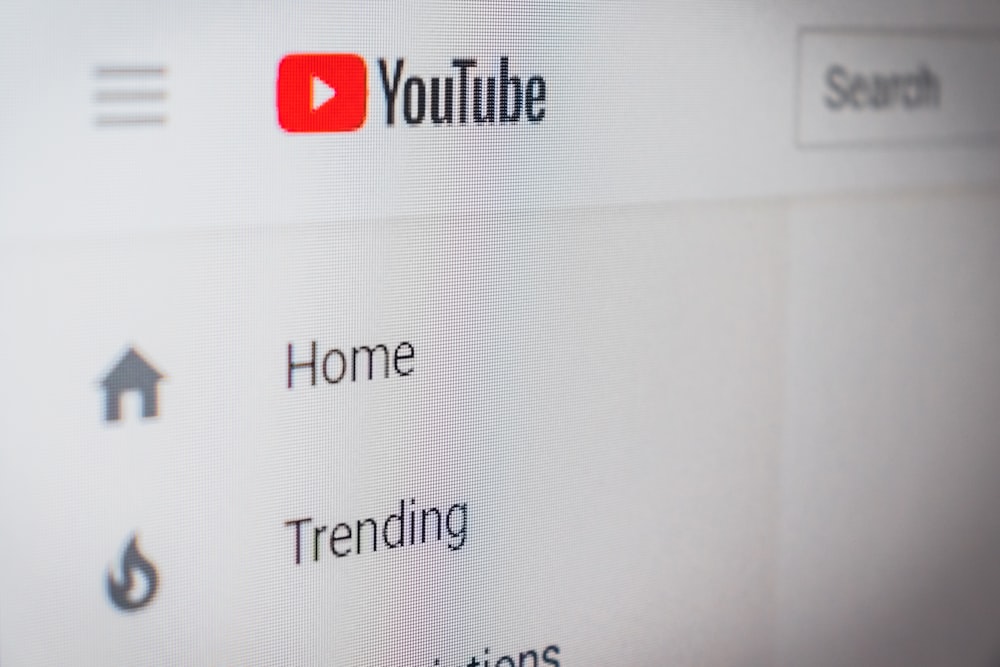To write in any industry, you have to become a great learner. The best writers on the planet can digest and distill information about topics they have no prior experience in, in record time. That’s the skill you need if you want to learn how to write for any industry.
Like many careers, writing and learning are about developing reliable, dependable, repeatable processes and systems. How you approach writing is everything.
With the right system, you can learn anything. You can write on any topic and for any industry.
So in this blog, here’s what we’ll be covering:
- How to become a subject matter expert and writer in any industry in 2-4 weeks.
- Why all great writing starts with research: your audience, keywords, SEO.
- Why and how you should write while you read and research.
- How to leverage the right tools to 5-10x your writing speed, accuracy, output, business growth, and billable rate as a writer.
Let’s dive in.
Before We Get Started: The Myth of the Expert
Before we get started, let’s set the record straight: words like “professional” or “industry expert” are reflexive.
You are an expert relative to the experience of those around you.

For example, say that you’ve only been doing your own taxes for two years. None of your friends know how to do their taxes. Ergo, your social circle comes to you for tax advice and deems you “the tax expert” of the group.
You aren’t an accountant or even a certified tax preparer.
You just know more about it than the people around you.
That’s what being an “expert” is all about –– knowing 20% more than the average person.
You don’t need
- As much industry knowledge as you think
- As much writing or industry experience as you think
- A degree, certification, 100 published articles, a published book
You just need to show you can write high quality content.
In most cases, you can learn more than enough to write like an “expert” on any topic, industry, or niche in about 2-4 weeks.

What’s great about writing for any new topic or business is that it forces you to grow your industry knowledge and learn the topic matter, jargon, and concepts as fast as possible. Then you need to write, rewrite, and regurgitate it, which is basically teaching it to your readers.
If you stick to researching and writing anything for more than a year, you’ll become a world-class super learner.
That’s why I believe writing is one of the most effective and fastest conduits to learning anything. Period.
All you have to do is follow the learning and writing processes covered in this blog.
These will give you skills you can transfer and replicate to any topic, subject, niche, business, or industry.
Now that we have that covered, here’s the process for how to become an how to write for any industry and learn any niche.
Writing and Learning: The Silver-Bullet Process
1. Learn Everything you Can About Your Audience
Every great writer starts by learning everything they can about their audience.

- Who are they?
- Where are they located?
- What questions is your client’s audience asking on Google?
- What problems or challenges are they facing?
- What solutions are they looking for?
- What are they looking to accomplish?
- What are their greatest pain points?
When it comes to writing high-quality content in an industry or niche, you’ll start here every time.
Writing and effective content marketing is about understanding your audience and industry first.
Then you write.
2. Find Your Keyword(s)
What keywords is your client’s ideal client or customer searching for?
Use keyword research tools like the ones listed below to find out what your audience is searching for online.
- Google Keyword Planner
- Google Trends
- Google PAA
- SEMrush
- Ahrefs
- WriterZen Keyword Explorer
- SpyFu
- Quora
- MozBar
- UberSuggest
These are the topics you’ll be researching and writing about.

Anytime I onboard a new client, I put together all of the relevant keyword data I can find around their business. Keyword research takes time to compile but isn’t a complicated process or difficult to learn. You can learn everything you need to know about it on YouTube.
Plus, this initial keyword research gives you a list of enough data to create a list and content calendar of blog content I can run with for months (or years in some cases)
3. Draft A Working Title or Headline First
Use your keywords, phrases, and questions as the starting point for your content.
Your keyword should be in your headline.
Your title or headline should make people want to click on your article in the first place.
Your title should:
- Incorporate the exact usage of your target keyword
- Grab your readers’ attention
- Pique their interest
- Be relevant to your audience
- Incite emotion to increase their chances of clicking your headline

Once you have a working title, you can move on to the rest of your article.
We’ll sharpen, refine, and augment your headline later to make it irresistible and clickable.
Pro Tip: You have the best shot at crafting a killer headline after you’ve finished your article and built a complete knowledge of your subject matter.
4. Build Your Outline
Punch the keyword or phrase you’re targeting into Google.
Take a look at the top 10 organic search results for that keyword –– the first ten links listed below the ads and/or maps section.
Pull up each one of those articles in separate tabs and use Google Chrome’s SEO Meta-in-one-click extension to analyze the headers (H1, H2, H3, H4) for each of those articles.

Check for overlapping keywords, questions, and phrases amongst the top 10.
Ask yourself: How could I make this existing ranking content better?
How can I better incorporate my keyword into my headers?
5. How to Write For Any Industry: Write as You Read
This is a critical skill. It will save you a metric ton of writing time.
After you’ve built your outline, it’s time to write.
Instead of reading everything, you can get your hands on first, and then writing –– you should write as you read.
Why is that?
Ingesting and regurgitating information is infinitely easier in small chunks vs. reading a lot of information and then trying to recall all of it at once. That makes this method the fastest and most effective way to learn any niche or industry in record time.

This is one of the top recommendations I have for new and veteran writers writing in any industry, but especially new or unfamiliar ones
What does this look like in practice?
Either split your screen or have two different monitors that have:
- The software you’re writing in.
- The page, article, blog, video, podcast, piece, etc. you’re referencing.
Using this method is going to make your life as a writer 100x easier.
6. How to Write for Any Industry: Let AI Write for You
I can’t stress this enough to new freelance writers:
If you want to start writing, build your portfolio, close clients, make money, and start building your business as quickly as possible –– invest in an AI writing assistant.
This software has transformed my career. It’s changing the industry for the better as well.

These tools do exactly what they sound like: you tell the software what you want to write about, and it writes for you, including:
- Headlines and blog titles
- Outlines
- Bulleted lists
- Sales page and landing page content
- Social media content and ad copy
- Sales copy
- Email marketing headlines and copy
- Introduction and conclusion paragraphs
- Entire paragraphs of cohesive written content
- Some even write original, unique fiction and creative stories
Trust me when I say this software will be the best $29-$59 you spend every month.
Even better, you can get a lot of breaking, new AI writing software for $49-$200 TOTAL (yes, for lifetime access) on AppSumo.com.
For more on AI writing assistants, be sure to read:
- Top 10 AI Writing Generator Software: How to 10x Your Productivity in 24 Hours
- The Best Writing Assistant Software
- The Best Writing Apps for Freelance Writers
7. Finish Your Draft
Write the first draft of your content all the way through without stopping.
Don’t edit as you write.
Write an article, blog, landing page, or piece in its entirety before you even think about hitting delete or backspace.

Write your conclusion paragraph or statement and use the conclusion header “In Closing” or something similar to signal it’s the end of your piece.
Include a strong call to action at the end of your piece for your audience or your client’s audience: “Subscribe,” “Call us,” “Contact Us,” “Buy Now,” etc.
8. Edit and Proofread
Edit and proofread every piece of content you write before you ship it –– for yourself or your client.
Don’t think you’re great at editing or proofreading? You don’t have to be.
Thankfully, writing assistant software like Grammarly, Hemingway Editor, and ProWritingAid can be your digital editor and proofreader.
For more on that, be sure to read my blog on The Best Writing Assistant Software.
9. Finalize Your Headline
Your meta title or headline and meta-description are your only shot at creating a great first impression with potential readers. Those are what will make them decide to click or skip your writing.
Use CoSchedule’s Headline Analyzer or something similar to maximize the stickiness and clickability of your headline and piece.
Also, be sure to read How to Write a Headline: The #1 Writing Skill and How to Write Eye Catching Headlines: 8 Easy Steps for how to crush headline writing.
10. Dial in Your SEO
If you’re writing on a WordPress website, use an SEO plug-in like Yoast or All-in-One SEO to optimize your keywords, title, meta title, meta description, SEO score, and push your probability of ranking on Google as high as possible.

If you’re using another website builder or content management system (CMS) like Squarespace or Wix, use their native SEO software options to boost your SEO score as much as possible.
Regardless of the platform you write on, I highly recommend leveraging CMS-independent SEO and content intelligence software like Outranking.IO, NeuronWriter, WriterZen, or NeuralText.
11. Be Open to Your Client’s Feedback
Any time you write for a client, be open to their feedback.
While you should never write something that’s against your ethical standards or completely out of scope with the original project brief, know that clients are ultimately paying customers.

They get the final say on what goes into the final product –– not you.
Take the feedback as an opportunity for growth in learning the industry and sharpening your writing craft in that field.
That being said, don’t let unnecessarily nitpicky clients give you the runaround and waste your time and money.
How to Write For Any Industry: More Tips
Read the Top 3-5 Best-Selling Books in the Industry
This education will be faster and more concentrated than any college degree for any industry you’ll ever write in.
If you want to write in a specific industry, the best way to learn about that industry is to read the top 3-5 best-selling books in that industry. Then, take notes on the books, blog about it, share your learnings and findings on your own website, blog, portfolio, or social media.
This will give you an understanding of the common language, core knowledge, phrases, and concepts used in that industry so you can write with total authority.
YouTube
You can also get a complete college education on YouTube. I learned how to play guitar and improvise well enough to gig and record with bands, just by learning from awesome guitarists on the platform.

I have also learned a metric ton about SEO, copywriting, and marketing, as well as website design, management, and building.
Interview Your Clients
This is a seldom sought-after but wildly effective tool for rapid learning and becoming a subject matter expert in an industry.

When you onboard a new client, research everything you can about their niche, industry, products, key services, target audience, challenges, and roadblocks their target customer is facing.
Then do this:
- Use the keyword tools I mentioned above to pull real FAQs and search queries your client’s target audience is searching for online. I recommend getting at least 10-20 in total.
- Compile those in a Google Doc or Sheet.
- Schedule an interview with your client.
- Use free or inexpensive recording and transcription software like Otter.AI to record your interview and generate a transcription of the conversation.
And voila, you just accomplished several valuable tasks in a single project:
- Built credibility and trust with your client: You took the time with them and show interest in them and their industry.
- You get a comprehensive industry learning experience straight from the mouth of your client –– the expert.
- Created a library of video content for your client: Creates nice upsell potential and could segue into you landing more billable hours with your client for video marketing services.
- Built out a Pipeline for 10-20 Pieces of Content: That interview and transcript just became 10-20 content pieces you can use to write for your client, and you’ve already used your keyword tools and research to prove people are searching for those questions and answers online. The content will write itself.
In Closing
There you have it! All of the cheat codes I wish I had when I had first started writing packed into one article. If you find any processes, systems, or software stacks that work particularly well for your business, feel free to leave them in the comments section below.
Ready to launch your writing career or side hustle?
Download my free ebook on the Top 20 Highest Paying Jobs for Freelance Writers.
